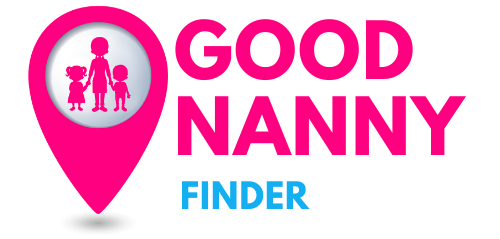Work as a Team with Your Nanny to improve child behaviour
It’s essential to find a nanny who uses similar discipline strategies. A shared methodology between the parents and childcare provider gives your child the consistency and structure they need to thrive. Plus, having your nanny use a similar approach to discipline makes addressing any behavior problems more effective.
Sometimes, finding a nanny who has the same approach to discipline can be a little tricky. However, you can also guild a childcare provider who is open to learning and using your preferred techniques.
Good Nanny Finder shares how parents can work as a team with your nanny to address discipline issues.
Benefits of Shared Core Beliefs
Shared core values are the cornerstone of all successful relationships. It’s a greater indicator of long-term success than the nanny‘s skill, experience, and job competencies. It’s the glue that holds everything together. When disagreements repeatedly emerge it’s often the result of conflicting philosophies on how a child should be raised.
At the end of the day, a nanny is a proxy parent. For the relationship to work well, philosophies and attitudes, including discipline must be in alignment. Shared beliefs are a critical issue that should not be overlooked.
Questions Parents Should Ask
The key to discovering a nanny’s approach to discipline is preparing well-constructed interview questions. It means going deeper. The applicant must tell you about specific experiences when she demonstrated her approach toward discipline. The goal is to uncover if their approach toward discipline aligns with your own. When done correctly, the candidate should not be clued into the response you are seeking.
Consider asking the following questions:
- Tell me about a time you had to discipline a child. What happened and what corrective action did you take?
- Tell me about a time a child in your care had a temper tantrum. What happened and how did you handle it?
- Tell me about a time when a child did not follow your instructions. How did you handle it?
- Tell me about a time when you had a problem in the past following a parent’s directives regarding discipline? Why didn’t you agree with it?
- Tell me about a time when a parent disagreed with your approach on disciplining their child. What happened and how was it addressed?
- Tell me about a time when you disagreed with a parent’s approach to discipline. Did you address it with the parent?
Potential Problems With Different Expectations
Before you hire your nanny, sit down with them and lay out clear discipline guidelines. Gauge their reaction. If your nanny doesn’t respect or align with your rules, they won’t necessarily enforce them. You won’t be able to work as a team with your nanny, this can lead to conflict down the road, as well as confusion for the child.
Problem-Solving Tips
You hired your nanny as a professional who clearly has talent when it comes to caring for kids, so be open to hearing about what they think is appropriate. For example, while you may have a laissez-faire approach to snacks before meals, they may advocate for having a dedicated snack time and then waiting for dinner.
Hear them out. Maybe you can try their approach or find a way to compromise between your two ways of thinking. However, if you feel uncomfortable with their suggestion, you should feel confident that your wishes will be followed.
On the other hand, if your nanny is too harsh (reactive, yelling, insulting or demeaning) or too soft (permissive, push-over, amiable) , discuss it directly with the nanny. If the nanny does not demonstrate her willingness to make an immediate change it may be time to look for a new caregiver.
[Related article: Which Nanny Fits Best Your Family]
Better relationship with your Nanny
You’ve spent a lot of time carefully crafting to-do lists or instructions for the nanny, but have you invested time creating an environment of professional intimacy and trust? The nanny should feel comfortable bringing all challenges, questions, and concerns to you.
When you are curious rather than defensive and willing to listen to others at a deeper level, the nanny feels more comfortable opening up and sharing. It is this skill of communication that affords you, as their employer, the greatest opportunity to make a difference in your day-to-day interactions with your nanny.
Regularly schedule time together to speak in person. It is your opportunity to listen, solve problems, influence, make decisions, and create an environment where employees feel heard and energized.
You can’t do this via text or email. You can’t do this when you’re rushing out the door in the morning or walking in the door in the evening with children demanding your attention.
As a nanny employer, it’s critical for you to be able to have open and honest conversations about the happenings of your child’s life – including any discipline issues.
Bottom line—if a nanny doesn’t feel comfortable coming to you, they won’t. Create a work environment where their feedback is not only appreciated—but encouraged.
[Related article: Amazing Tips to Help Your Nanny to Settle]
Tips for Working Together
Sit down together and decide on how closely you’ll work together on discipline. Some parents prefer to consult on the big issues, such as hitting, aggression, or bullying, whereas others like to be looped in on more benign transgressions as well.
However it’s approached, it’s critical for ground rules to be established and the nanny is given clear instructions on how things should be addressed and corrected.
Work as a team with your nanny to construct a positive discipline approach that uses clear expectations, clear consequences, and consistent “enforcement.”
- Clearly linked consequences that match the age of the child
- Define clear expectations which are reasonable for the age of the child.
- Parent and Nanny should agree to fair, firm, and consistent follow-through
Best Discipline Practices
Nannies should practice positive discipline techniques. Positive discipline is an overarching philosophy that helps a child develop a conscience by his own internal discipline and compassion for others. Traditional punishment teaches what is wrong, but does not always help a child learn what is right.
The goal of discipline is to teach. It teaches self-control and socially acceptable behavior. You encourage good behavior by correcting poor behavior and praising good behavior. Discipline is an opportunity to model respect, patience, and good problem-solving.
You can visit our recent blogs for more Nanny and Child Care Tips and Ideas.
If you would like to hire a nanny to help you, we at Good Nanny Finder are very much willing to assist you. At Good Nanny Finder, we take safety very seriously. We do complete nanny background checks. All candidates go through our extensive nanny screening services. Very few of the applicants who apply are accepted due to our stringent requirements. Our Excellent Nanny Services include Part-Time Nannies, Full-Time Nannies, Temporary Nannies, Babysitters, and Family Assistants.
We are committed to happiness at home. Therefore, we offer excellent, tailor-made reliable Nanny Services. Our nannies are available everywhere in Switzerland, Germany, The Netherlands and France.





